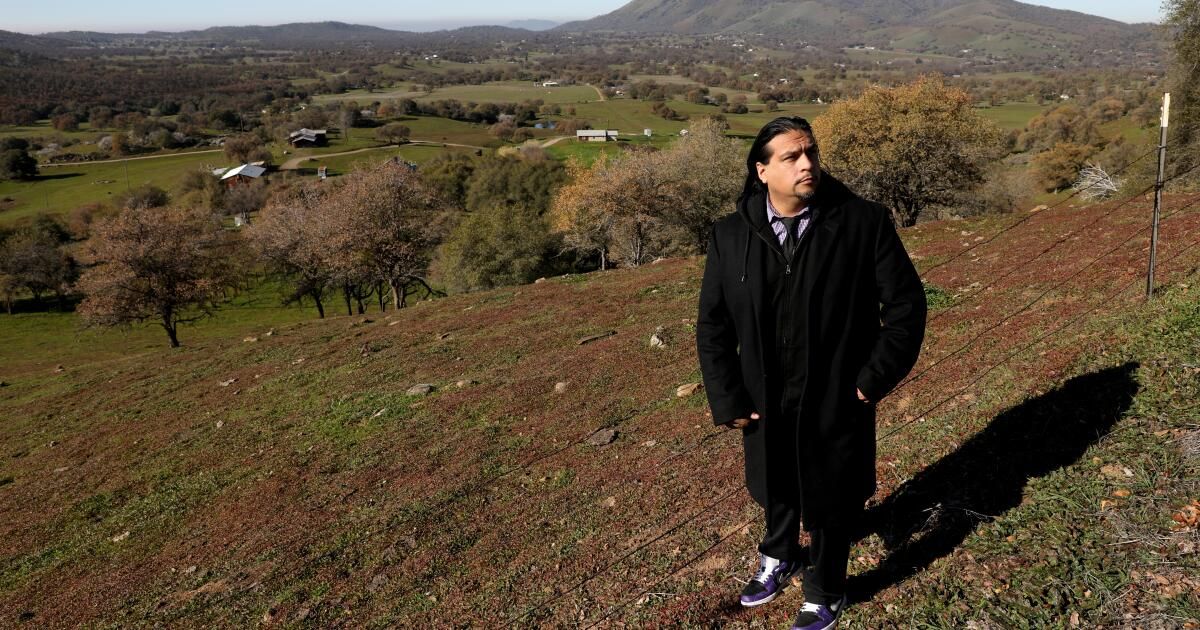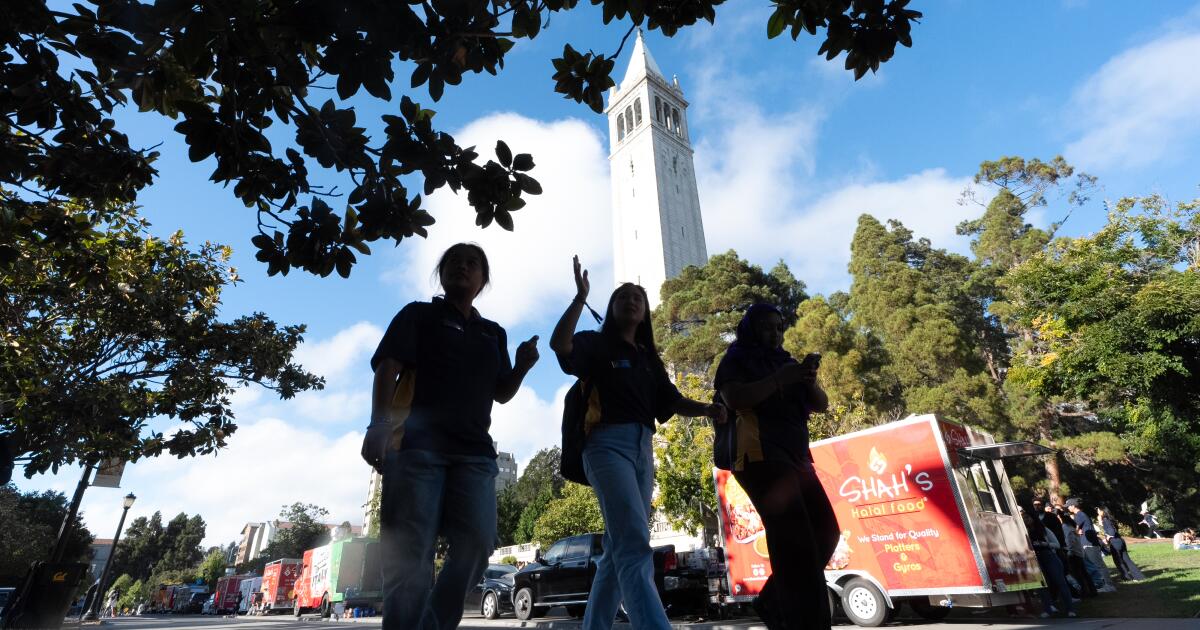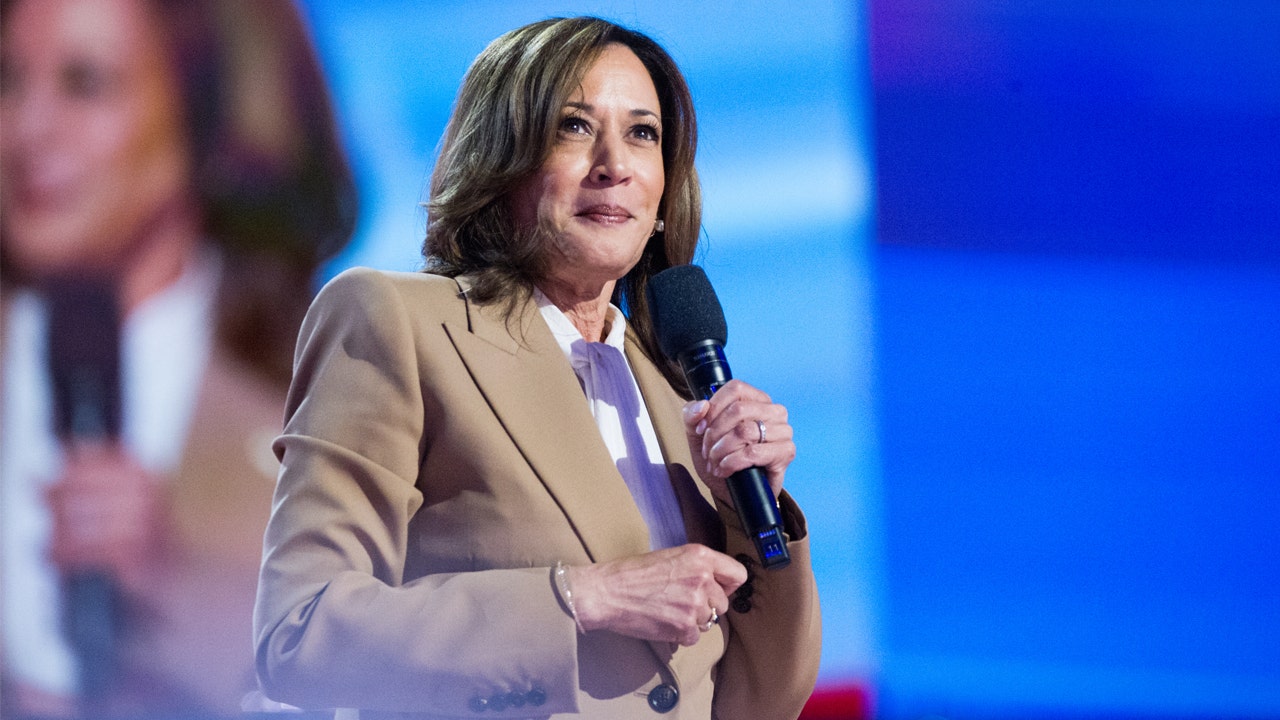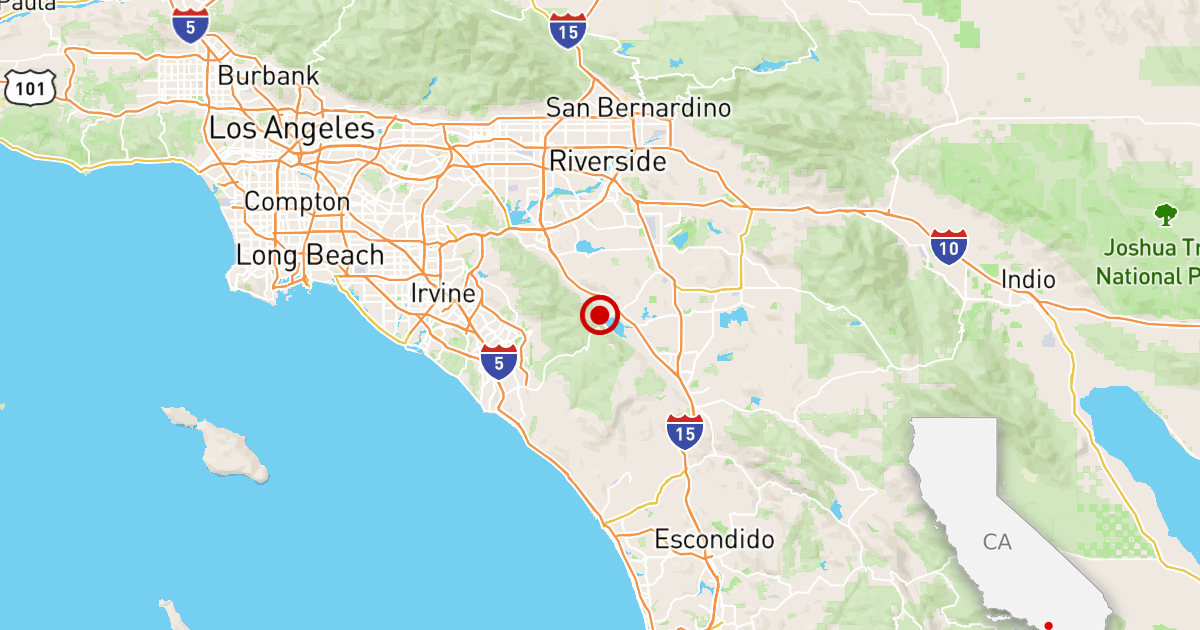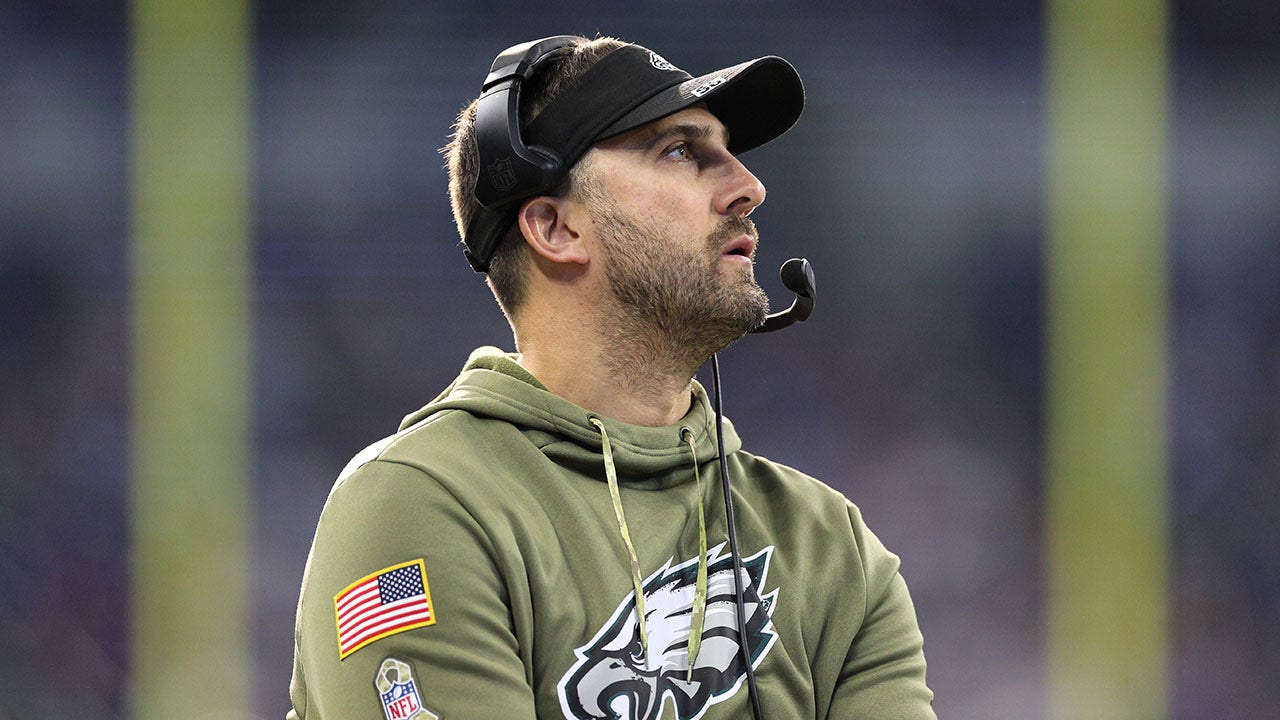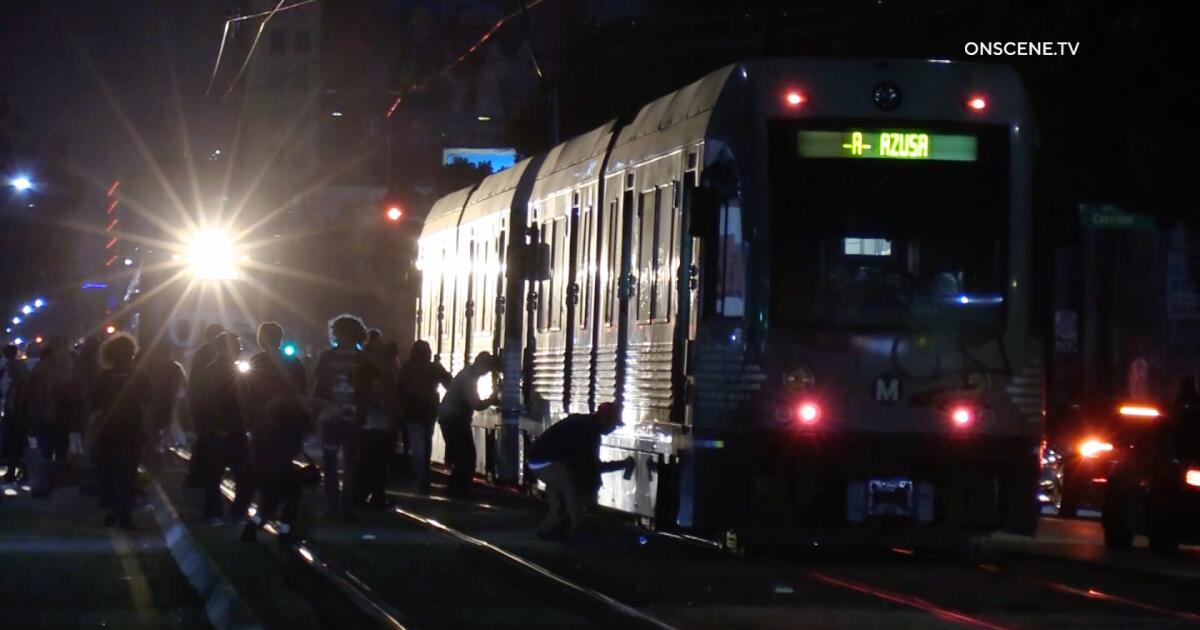For years, Native American residents of Fresno County have campaigned to remove the word “squaw” from the name of an unincorporated city in the Sierra Nevada foothills.
The word, many Native Americans say, has been used as a slur and insult against Native women, part of a broader perpetuation of violence against them. In 2022, organizers scored a victory when the U.S. Department of the Interior, seeking to remove the “S-word” from federal lands, redesignated the town as Yokuts Valley for federal use. That same year, the California Legislature passed a measure requiring the term to be removed from place names and geographic landmarks across the state by 2025.
But despite gaining support from the federal government, state lawmakers and California's governor, Native American activists are frustrated that Fresno County leaders are fighting the name change. The Board of Supervisors has placed a measure on the March ballot asking voters to determine who has the right to name (and rename) communities and geographic features in the county.
The measure does not specifically refer to Yokuts Valley, and some people in the county argue that the city's name never changed because the federal government had no right to intervene. Measure B would clarify that such decisions lie squarely in the hands of county supervisors and would amend the county charter to give the board “the duty and power to name or rename geographic features or place names within the unincorporated parts of Fresno County.” .” The board voted 3-2 to put it on the ballot.
A group of state lawmakers who pushed 2022 legislation to ban the S-word in state landmarks have joined with Indigenous organizers in a campaign against Measure B.
“Fresno County is special because it has been very difficult,” said Morning Star Gali, executive director of Indian Justice, an organization that tracks California's progress in renaming geographic sites that contain the term.
Scholars have debated the origin and historical use of the word. Some say the word originated as a generalized term for Native women. Others, including Gali, say the term took on a darker tone that denigrates Native women, relegating them to subhuman stature. Merriam-Webster labels the word as offensive, outdated and derogatory.
“The erasure and the invisibility, that's what we're fighting against,” Gali said. “It's not just a word. It is a word that contains that history, that context and that meaning.”
Supervisor Nathan Magsig, who represents Yokuts Valley, said he pushed Measure B in response to what he saw as “a lot of changes” that were happening with little input from people who live in the communities where relief efforts are underway. name change. He said Yokuts Valley residents were largely opposed to changing the community's name in a survey he conducted.
“This is a local issue,” Magsig said. “Measure B is an attempt to not only help with that process, but it also has to do with other changes that are happening around us.”
The Native Americans who led the effort to change the name say they are baffled that a county official is trying to undo work that included community input. Roman Rain Tree, a member of the Dunlap Band of Mono Indians, who have ancestral ties to the region, led a public petition and filed an appeal with the U.S. Board on Geographic Names.
Magsig is “making people angry, making them angry, keeping the chaos going,” said Taweah Garcia, a member of the Dunlap Band of Monkey Indians. “We understand that some people do not agree with this. “We know that some people are in favor of the name change.”
Official efforts to rename places with the S-word began in 2021 when U.S. Secretary of the Interior Deb Haaland, the first Native American to hold that position, banned the term on federal lands and ordered the Board of Geographic Names that began to change the name of more than 660 valleys. lakes, streams and other federal sites that carried the terminus. Haaland declared the term derogatory and said the nation's “lands and waters should be places to celebrate the outdoors and our shared cultural heritage, not to perpetuate the legacy of oppression.”
The state law banning use of the term empowers an advisory committee, in communication with tribes and local officials, to remove the slur from city and geographic place names by Jan. 1, 2025.
“We oppose this attempt to circumvent a lawfully passed law,” Assemblyman James C. Ramos (D-Highland), a Native American and author of the bill, said in a statement. “Eliminating the S-word as a place name means choosing not to use a word that denigrates women and Native Americans.”
Magsig questions whether the term is really that derogatory and insists that the bill's name-change deadline, 2025, means the valley's name has not officially changed.
“Is there a name that is not offensive to anyone?” Magsig said. “Names are identities for some people. Yes, history is not perfect, but we should not erase that.”
Fresno County is also fighting the state's renaming campaign on a legal front. The county filed a lawsuit against the state last year, alleging that the name change imposed on Yokuts Valley violates the county's First Amendment right to free speech. A judge rejected the claim, finding the county lacked legal standing. The county has said it will appeal.
Kenneth Hansen, a political science professor at Cal State Fresno, said Magsig and other conservative supervisors are using the issue to appeal to the county's Republican base and increase turnout as they run for re-election. “He's doubling down on this kind of culture war to try to get through the primary and possibly the general election,” said Hansen, who is Native American. “Measure B is a conservative approach.”
Native Americans pushing to eradicate use of the term in Fresno County say place names for cities, prairies, mountains and lakes should be based on respect, not a throwback to oppression. Naming a town with an insult “is not honoring indigenous women,” said García, who lives in Dunlap, a neighboring community in the Yokuts Valley.
Shirley Guevara, an elder of the Dunlap Band of Monkey Indians, acknowledged that change has come slowly, as did the decades-long campaign to get the Washington, D.C., football team to drop the word “redskin” from its name. .
Magsig declined to speculate on whether supervisors would return Yokuts Valley to its former name if Measure B passes, or look for an alternative like Bear Valley, which many residents favor. For now, he said, he is focused on getting the measure passed.
“The next step is to find out what the voters want,” he said.

